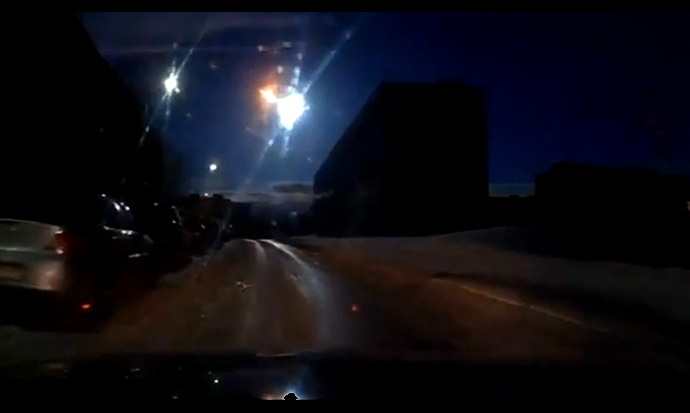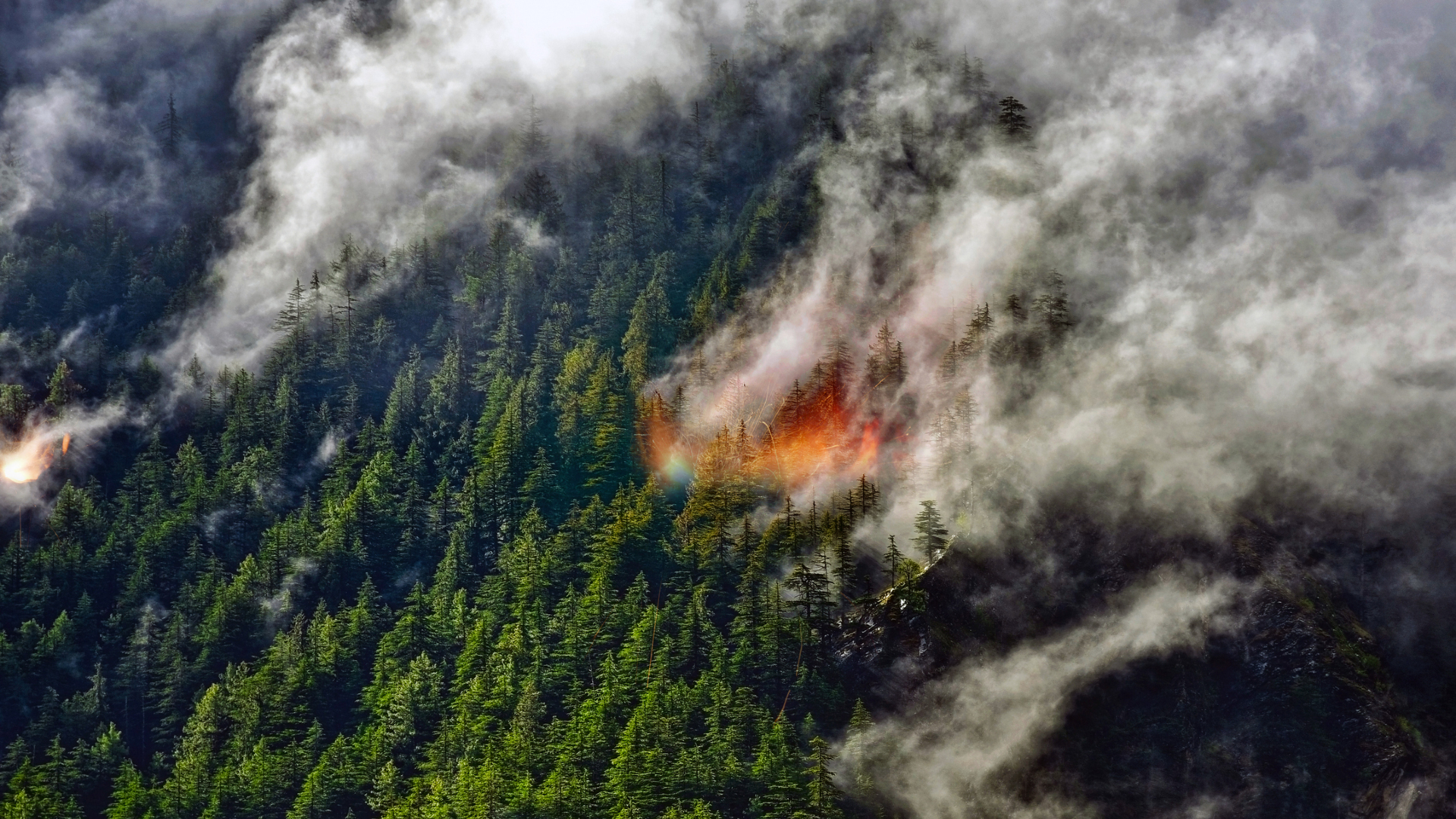Déjà Vu: Bright Fireball Explodes Over Russia (Video)

Russians may be forgiven for thinking the sky is falling.
A super-bright meteor exploded over the northern Russian city of Murmansk early Saturday morning (April 19), a little more than a year after another airburst lit up the skies above Chelyabinsk, about 1,300 miles (2,090 kilometers) to the southeast.
"Most observers identified the object as a meteorite, though officials have neither confirmed it nor said where the fragments are likely to have landed," the Russian news outlet RT News reported Saturday. "Others speculated that the object may have been space debris, re-entering the atmosphere."
The explosion caused no injuries on the ground, RT News added. That's in contrast to the Chelyabinsk event, which wounded about 1,500 people on Feb. 15, 2013.
On that day a year ago, a roughly 65-foot-wide (20 meters) asteroid detonated without warning 14 miles (23 km) above the ground, generating a powerful shockwave that broke thousands of windows in the city below. (Most of the injuries were caused by shards of flying glass; there were no reported fatalities.)
The Chelyabinsk fireball served as a wakeup call, many scientists say, alerting the public and policymakers to the dangers posed by near-Earth asteroids. Millions of these space rocks are thought to cruise through Earth's neighborhood, but researchers have spotted and tracked less than 11,000 of them to date.
The Murmansk and Chelyabinsk events shouldn't be taken as a sign that Russia has angered the heavens in some way. Russia is the largest country by land area in the world, so it naturally absorbs more asteroid strikes than any other country.
Breaking space news, the latest updates on rocket launches, skywatching events and more!
Follow Mike Wall on Twitter @michaeldwall and Google+. Follow us @Spacedotcom, Facebook or Google+. Originally published on Space.com.

Michael Wall is a Senior Space Writer with Space.com and joined the team in 2010. He primarily covers exoplanets, spaceflight and military space, but has been known to dabble in the space art beat. His book about the search for alien life, "Out There," was published on Nov. 13, 2018. Before becoming a science writer, Michael worked as a herpetologist and wildlife biologist. He has a Ph.D. in evolutionary biology from the University of Sydney, Australia, a bachelor's degree from the University of Arizona, and a graduate certificate in science writing from the University of California, Santa Cruz. To find out what his latest project is, you can follow Michael on Twitter.
